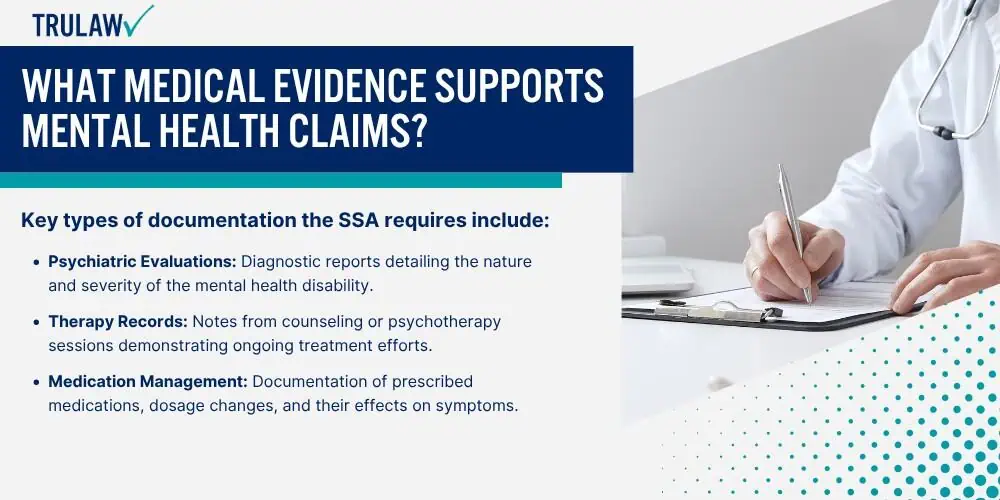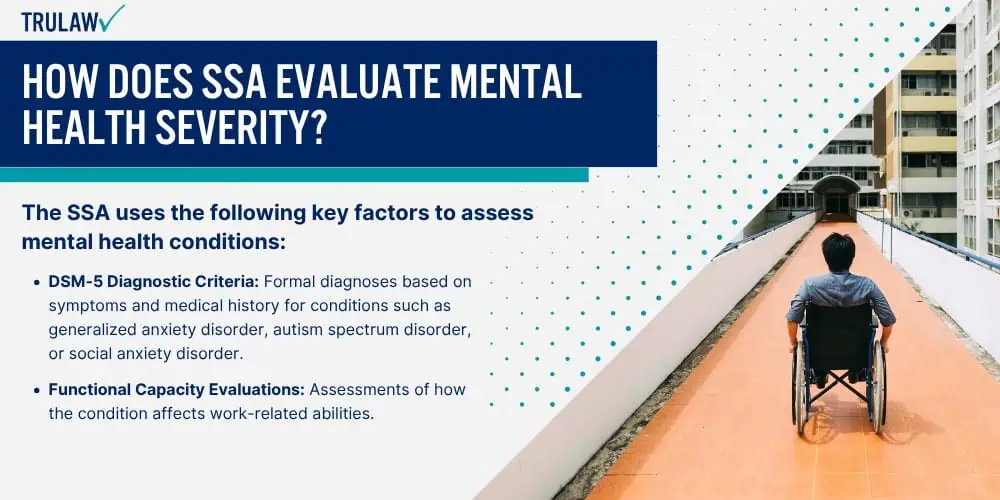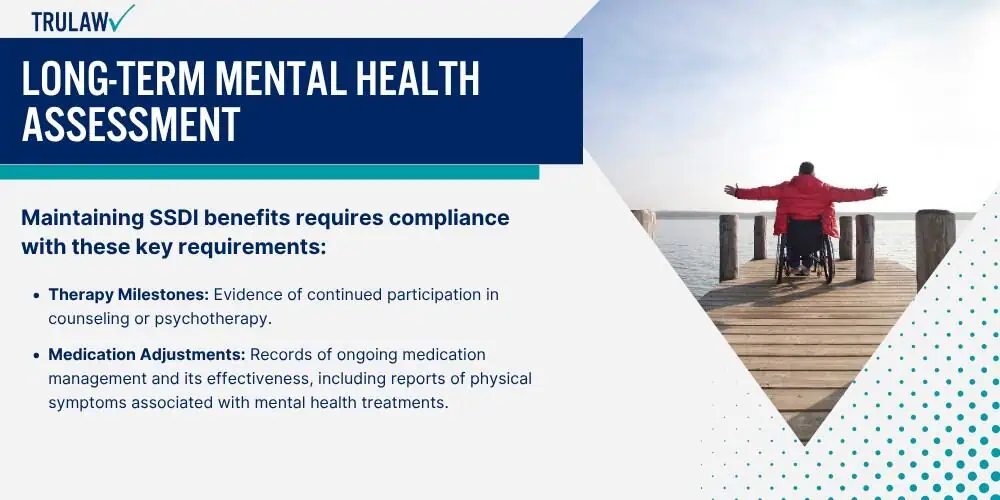Establishing SSDI eligibility for mental illness requires robust medical documentation that proves the severity and persistence of the impairment.
The Social Security Administration (SSA) relies on clinical evidence from mental health professionals to evaluate claims, including psychiatric evaluations, therapy records, and medication histories.

To qualify, applicants must demonstrate how their condition impairs their ability to function in daily life and maintain gainful employment.
The evidence should highlight symptoms such as severe panic disorder, depression, or cognitive impairments, along with their documented impact on work and social activities.
By meeting these criteria, applicants can build a strong case for disability benefits.
Clinical Documentation and Psychiatric Requirements
Comprehensive documentation is essential to gaining SSDI approval for mental illnesses that qualify as disabilities.
The SSA looks for detailed, objective evidence that supports the severity of the impairment, such as therapy notes, psychiatric testing, and evidence of long-term medical treatment.
Beyond the diagnosis, this documentation must show how the condition impairs the applicant’s ability to work or complete daily activities.
Claims that lack supporting relevant medical evidence of functional limitations are often denied, making thorough documentation a foundational requirement for success.
Key types of documentation the SSA requires include:
- Psychiatric Evaluations: Diagnostic reports detailing the nature and severity of the mental health disability.
- Therapy Records: Notes from counseling or psychotherapy sessions demonstrating ongoing treatment efforts.
- Medication Management: Documentation of prescribed medications, dosage changes, and their effects on symptoms.
- Functional Assessments: Reports highlighting the claimant’s ability (or inability) to perform basic tasks and interact socially, such as evidence of flat or inappropriate affect.
- Specialist Certifications: Statements from psychiatrists or licensed therapists supporting the disability claim.
These records must show consistency in diagnosis and treatment, as well as demonstrate the significant functional limitations caused by the condition.
Collecting this relevant medical evidence ensures that the SSA has sufficient information to assess the claim thoroughly.
Applicants should focus on presenting clear, consistent, and detailed medical records to strengthen a claim.
The more specific the documentation, the better the chance of approval.






